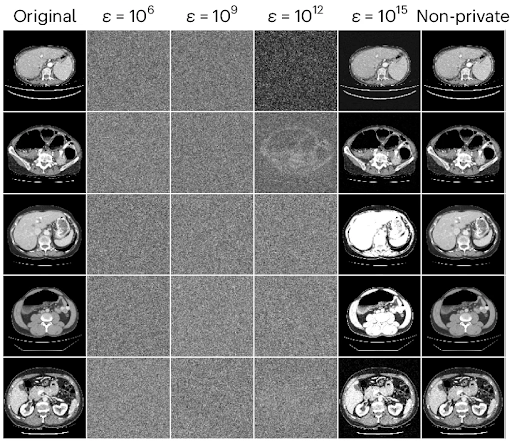In the United States, oncology practices face challenges related to patient care, treatment coordination, and administrative efficiency. One critical area is communication within healthcare teams. Effective communication among team members is important for smooth operation and ensuring the best outcomes for patients undergoing cancer treatment. Advances in artificial intelligence (AI) offer a new way to improve communication and streamline workflows. This article explains how AI summaries can change team communication in oncology practices and lead to better patient care.
The Importance of Communication in Oncology Practices
Oncology practices often consist of various professionals including surgeons, medical oncologists, radiation oncologists, nurses, and others. Each member contributes to tailoring treatment strategies depending on patient health, preferences, and clinical data. Real-time communication is necessary for effective decision-making.
In traditional settings, information may be miscommunicated or delayed, which can create gaps in care and postpone treatment. A study found that nearly 30% of oncology patients experienced delayed treatment initiation due to poor communication among providers. Better communication can reduce these delays and support a more cohesive treatment approach.
Role of AI in Enhancing Communication
AI technology can efficiently process large amounts of information. By using AI summaries, oncology practices can improve communication in several ways:
- Real-Time Information Access: AI can gather and present patient information from various sources, allowing team members to quickly access accurate data. This promotes informed discussions during meetings and reduces time spent gathering essential information.
- Standardized Communication: AI-driven tools can create standardized summaries that capture critical patient information in a consistent format. This minimizes miscommunication or oversight and helps in smoother transitions of care among specialists.
- Documentation and Record Keeping: AI can simplify documentation, automatically generating and organizing summaries of patient interactions, treatment plans, and clinical notes. This provides an accessible history of key points for reference during meetings.
AI and Workflow Automation in Oncology Practices
Transforming Processes through Automation
Administrative tasks in oncology can take up considerable time, which can detract from patient care. AI and workflow automation can help practices streamline operations and improve team efficiency.
- Scheduling Appointments: AI can automate the scheduling of appointments, managing calendars, and ensuring that oncologists are available for patient meetings. This reduces administrative burdens, allowing staff to focus on patient engagement.
- Patient Alerts and Reminders: Automated systems can notify team members of updates or changes in a patient’s condition. This timely exchange of information makes sure interventions are implemented promptly.
- Data Analysis: AI tools can analyze patient data, identifying trends and outcomes that may not be obvious to human providers. These findings can inform treatment strategies and administrative decisions, allowing for a more data-driven approach to patient care.
- Telehealth Integration: In the era of telehealth, AI can facilitate virtual meetings among oncology teams, ensuring that communication remains consistent regardless of location. This is essential as current healthcare demands flexibility.
Practical Applications of AI Summaries in Oncology
- Case Discussions: In tumor board meetings where oncologists discuss patient cases, AI summaries can provide key information such as radiology reports and past treatment history at a glance. This enables focused discussions and avoids redundancy.
- Treatment Protocols: For complex cancer cases, AI summaries can highlight specific patient factors and guidelines, ensuring treatment aligns with best practices while considering individual contexts.
- Research and Clinical Trials: AI can streamline summary preparation for research protocols, ensuring team members are well-informed about current trial statuses and participant obligations.
- Patient Communication: AI can also improve patient communication. By providing staff with comprehensive summaries, team members can answer patient inquiries more effectively, giving accurate information on treatment plans.
Challenges and Considerations
While using AI for communication in oncology has many benefits, challenges remain. Security, patient confidentiality, and data accuracy are important. Oncology practices need to ensure that any AI tool complies with regulations like HIPAA. Training staff to use these technologies effectively is necessary to fully realize benefits.
Adopting AI may also require investment in technology and modifying existing workflows. Administrators and IT managers must think about these factors when implementing AI solutions, considering both immediate and long-term costs and benefits.
Future Trends in AI Communication in Oncology
AI integration in oncology is expected to grow in the coming years. Emerging trends include:
- Predictive Analytics: AI will improve its ability to predict patient outcomes based on historical data and treatment responses. This can aid proactive decision-making in treatment plans.
- Natural Language Processing: As natural language processing advances, AI will better understand clinical notes, allowing for more accurate summaries that support clear communication.
- Continued Focus on Patient Engagement: Future AI tools may enable more personalized interactions with patients, improving understanding and satisfaction with their care.
Implications for Medical Practice Administrators
For medical practice administrators in oncology, adopting AI technology can enhance communication and streamline operations. Recognizing the benefits and challenges of AI will help administrators make informed decisions about implementation. By focusing on communication improvement and adopting AI tools, practices can provide better quality care for patients and optimize workflows.
As practices increasingly adopt AI, the overall field of oncology care will change. Improved communication from AI summaries can enhance teamwork among specialists and lead to better outcomes for patients undergoing cancer treatment.
The continued integration of AI technology could redefine communication standards in healthcare, making it more efficient and centered around patient needs. Each step towards applying these solutions signals progress for both the practice and the patients relying on coordinated cancer care.
In summary, the role of AI in enhancing team communication in oncology practices is an approach that combines technology and healthcare cooperation to improve patient outcomes in the United States. Efficient communication will be a key focus for future advancements in oncology and overall healthcare delivery.
The post Enhancing Team Communication in Oncology Practices with AI Summaries first appeared on Simbo AI – Blogs.











